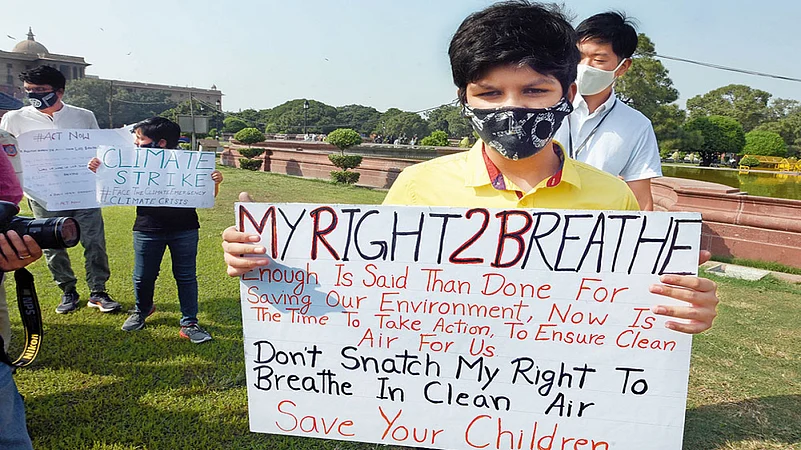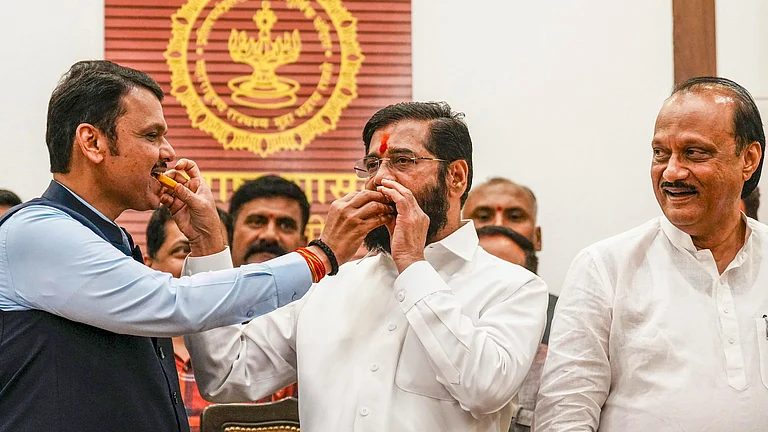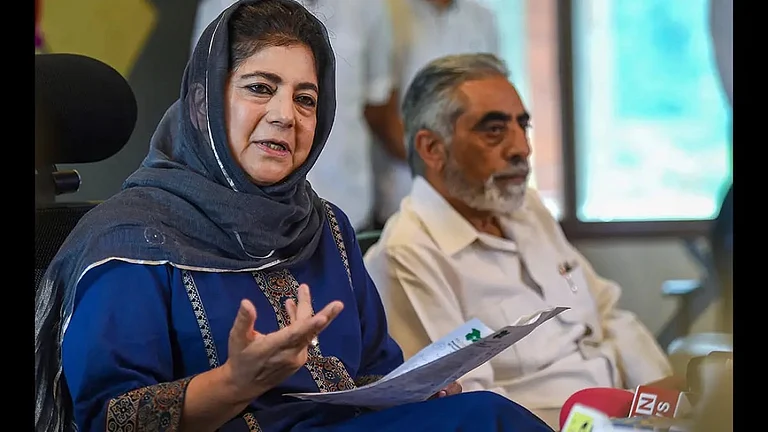The app on my phone tells me that the AQI level is two. My lungs tell me the same as I let the fresh, odourless, crisp, rejuvenating air flood my respiratory system. Alas, this is not my city. This is London. At the same moment, my city of New Delhi records an AQI of 342, and even this looks like a good day in terms of air quality, at least when compared to the many 500+ days we have seen this winter.
It pains me to think that many of my fellow residents of Delhi and northern plains may never ever get an opportunity to know what breathing pure air feels like. It makes me angry that more than 300 million people of this region are condemned to live in the gas chamber we call home. It shames me that my birthplace is the most polluted capital in the world once again. It saddens me that all our efforts to protect the ‘right to breathe’ of our people have had zero impact.
For as long as I remember, the air I have breathed has been in poor, very poor or severe categories. The good days have been so far and few in between that even their memories have disappeared in the greyish brown haze that surrounds us. The invisible suspended particulate matter took control of my life quite early in my childhood, forcing me to make innumerable trips to paediatricians, ENT and respiratory specialists. Antihistamines, steroid puffs and nebulisers were as much a part of my childhood as were toys and cartoons. But what troubled me more than the bouts of breathlessness and cough that I suffered, was that no one cared about what I and millions of others like me, were going through.
Air pollution was and is a non-issue for politicians, bureaucracy and, unfortunately, even for the citizens. For some strange reason, a critical problem which killed 1.8 million Indians in 2019 alone, does not figure in the priority list of the government and authorities. Short-term consequences, like breathlessness, allergies and eye infections which the people suffer as a consequence of high AQI, is actually nothing compared to the long-term damage it causes to our respiratory system, leading to asthma and even lung cancer.
The extent of damage air pollution causes is well-known. As per a recent study, it has been found that more than 1.5 million Indians lost their lives in 2019. This is more times the fatalities caused by Covid-19 which is considered to be the one of the worst pandemics in history. The sources of air pollution are also common knowledge. The increasing number of ICE vehicles, biomass burning, thermal power plants, construction and industrial activities are the main culprits for deterioration of the air quality in Delhi and adjoining regions. The solution to these problems is also well-known. Strict implementation of existing pollution-related regulations for industrial and construction activities, non-extension to thermal power plants with regard to the 2015 emission norms, switching over to clean renewable energy, encouraging a switch to e-vehicles and public transport by subsidising electric vehicles and making public transport cheaper and safer, incentivising farmers to remove stubble removal without burning, making arrangements for stubble removal are few steps which could help resolve this annual crisis.
For decades now, air activists have been requesting the Central and state governments to make a comprehensive plan to deal with the air pollution crisis by adopting, inter alia, the above-referred measures, but the desperate pleas have fallen to deaf ears. Unfortunately, politicians around the world act only on issues which effect the elections, and the bureaucracy only acts on issues on which the politicians focus. In spite of its tragic consequences, air quality doesn’t decide which party the citizens vote for. Therefore, this issue does not figure in the priority list of any political party.
Frustrated by the inaction of the authorities, I, along with my fellow activist Aman Banka, approached the Supreme Court in 2020 for protection of my ‘right to breathe’, which in my opinion is a basic human right. Due to the kind intervention of the apex court, the Commission for Air Quality Management in Delhi & Adjoining Areas Ordinance, 2020 was promulgated by the President of India, which created an all-powerful interstate commission to deal with the problem of air pollution. On paper, this is the toughest air quality law ever made in India and was expected to resolve the perennial air pollution problem affecting hundreds of millions living in Delhi, Uttar Pradesh, Punjab, Haryana and Rajasthan in the coming years.
However, even this the commission failed us. It neither undertook any scientific study nor any groundwork to ensure that the air quality does not deteriorate like previous years. When the AQI of Delhi again touched 1000+ in November and the commission remained untraceable, we were again forced to approach the Supreme Court for its intervention. Since the hearing on October 28, the highest court of the land has been doing everything in its power to guide, push, direct and sometimes even coerce the governments, the commission and other authorities to act against air pollution
However, all efforts have been in vain. The only response from the governments has been to file long affidavits stating numerous measures which they claim to have taken to combat air pollution. Other than that, there is no visible impact on the air quality, which continues to move between very poor and severe categories.
The situation would have been completely hopeless if it were not for the silver lining this time, the Supreme Court has openly expressed its commitment to finding a final resolution to this problem and further observed that the solution to this crisis will have to be found in science with the aid of experts. The court has categorically informed the states that it will not close the matter till a solution is found to the crisis, which has sent a strong message to the authorities that simply delaying the matter or giving vague assurances won’t help this time and they have to do something concrete. The strong observations of the court have already led to creation of four environment task forces, one each for NCR, Punjab, Haryana and Uttar Pradesh, along with 40 flying squads on December 2 and imposition of ban on construction activities and closure of schools and thermal power plants.
The court will again examine the impact of these new entities, and in case they don’t have much impact on the AQI, which is what most of us expect, then the court is likely to consider stricter measures.
Though the impact of previous efforts has been zero, the determination and firmness, which I see in the unrushed approach of the Supreme Court is something new. It gives to me as a glimmer of hope at the end of this long, dark tunnel. It gives me a belief that all is still not lost, and someday soon, we will get the AQI we deserve. Till then my people, let’s continue to suffer in the gas chamber we call home.
(This appeared in the print edition as "Young and the Restless")
(Views expressed are personal)
ALSO READ
Aditya Dubey is an 18-year-old climate activist

















